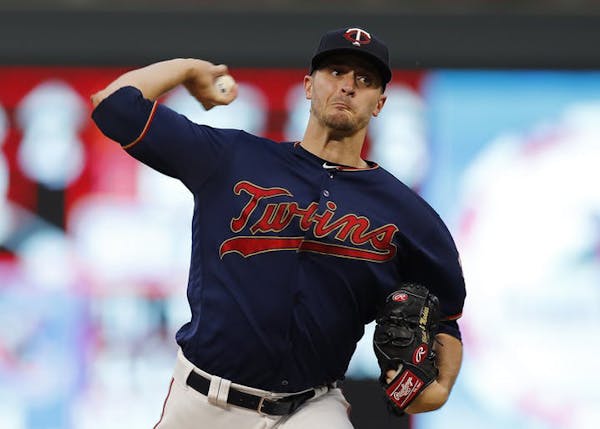FORT MYERS, Fla. – Miguel Sano has never earned eight figures in a single season, but 2021 is his breakthrough. The Twins first baseman will make $11 million this summer, more than every teammate but Josh Donaldson and Nelson Cruz.
Which is great, Sano said this week during Twins camp. But it's still a compromise.
"If in my career I'd been healthy, you can trust me, I don't sign for $30 million," Sano said with a smile at the thought of his three-year contract, agreed to 14 months ago. "But I'm glad I have it. I have a daughter, Dara. I have a family. You have a contract, you can give a good life to your family. You're all together, that's better than anything."
And that's the tradeoff that young players make when they accept multiyear contracts before they are eligible for free agency. Guaranteed salaries remove the risk that a devastating injury or just inconsistent play could prevent them from ever earning such life-changing sums, but they also lock them at salaries that aren't as large as they might be over the course of the contract, especially since they usually delay free agency.
"When you have money, it's like a different life," said Sano, who believes his career total of 131 home runs would be "a lot higher" but for a lacerated heel in 2019, a lingering hamstring strain in 2018 and a stress reaction in his shin in 2017. "I have [had] injuries. It makes you think, what happens if you can't play? You have to [provide] for your family."
Which is why Jorge Polanco jumped at the chance to guarantee himself $25.75 million two years ago, a five-year contract that arguably undervalues him, given that he immediately rewarded the Twins by becoming an AL All-Star starter five months later.
"Getting a contract extension makes things easier. You know your family is going to be all right, hopefully, if you take care of the money," said Polanco, the father of two young sons. "You get a better house. You hang out with your family and you see the happiness in them, that you are successful. It's nice."
That All-Star season of 2019, Polanco said, is evidence of an effect that the contract had that he hadn't anticipated: It increased his motivation. He worked out more often, pushed himself to improve even more, despite the knowledge that his salary — which is $4.3 million this year, $5 million in 2022 and $7.5 million in 2023 — is guaranteed no matter how he plays.
"It's not like, oh, I got a contract, I can chill. I come here to the field every day thinking that I need to be better every day, as a person and as a player," Polanco said. "It really does just make you work harder."
"A lot of people think you relax now. I say, I've got a contract, I try more because that's what I need to do. I work more," Sano agreed. "And my contract is three years. I'll play more."
Those contracts are a common topic in the clubhouse, Polanco said. Six years is a long time to wait for free agency, especially after three to five seasons spent in the minors, so plenty of young players ask him about his and the various tradeoffs.
"We love baseball and we like to win and we have fun playing. But this is the other part — we make a living like this. By playing well we help our family," Polanco said. "So yeah, we talk a lot about this. The younger guys, we talk a lot about it. We like to show them, you can get a contract, but you have to work for it. And after that, you have to work harder."
Having negotiations behind him allows him to relax, he said. When the Twins approached him about switching to second base, he knew he would have plenty of time to make the transition, he said. In fact, his contract makes him feel so content with the Twins, he hopes he's in the organization permanently.
"I've been with the Twins since I was 16. I mean, I was a little kid. Just a kid, amazing," said Polanco, now 27. "I got a contract and they're happy, I'm happy. I think about, I can play my whole career with the Twins. I don't know what is going to happen. But I would like to play with the Twins my whole career."
